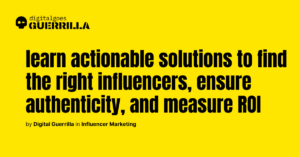Influencer marketing is no longer just a trend—it’s a cornerstone of modern digital strategies. Yet, many brands struggle with the intricacies of finding the right influencers, assessing ROI, or scaling campaigns effectively. Traditional methods can be time-consuming, biased, and difficult to measure. Enter AI: a game-changing tool that can streamline influencer marketing, boost accuracy, and deliver measurable results.
In this blog post, we’ll explore how to use AI in influencer marketing beyond the basics, diving into practical applications, advanced strategies, and emerging trends. By the end, you’ll be equipped with actionable insights to enhance your campaigns and stay ahead in a competitive market.
How AI Transforms Influencer Discovery: Precision at Scale
One of the most challenging aspects of influencer marketing is identifying the right creators who align with your brand. AI simplifies this process by analyzing massive amounts of data across social media platforms.
For instance, AI-powered tools like Heepsy or HypeAuditor can scan millions of influencer profiles, filtering them by metrics like audience demographics, engagement rates, and niche relevance. Going deeper, AI algorithms can assess sentiment in an influencer’s content, ensuring they convey the tone and values your brand embodies.
Example of How AI Transforms Influencer Discovery:
Imagine a wellness brand seeking micro-influencers with a highly engaged audience interested in mental health. AI tools can identify influencers whose followers frequently discuss related topics, ensuring a perfect fit.
Pro Tip: Use AI to perform a comparative analysis of influencers’ past campaign performance. Platforms like Traackr offer insights into conversion rates and sales metrics, enabling data-driven decisions.
Optimizing Campaigns with AI-Driven Predictive Analytics
AI excels in predicting trends and outcomes. Predictive analytics tools can forecast the potential performance of influencer campaigns by analyzing past data and market dynamics. This helps brands allocate budgets wisely and set realistic KPIs.
For example, AI can model how likely an influencer’s audience is to engage with your content based on their historical behavior. It can also suggest the best posting times and content formats for maximum reach.
Practical Application of Optimizing Campaigns with AI:
A fashion retailer used AI-driven analytics to predict which product categories would resonate most with an influencer’s audience. The result? A 35% increase in conversion rates compared to campaigns without AI insights.
Actionable Tip: Leverage tools like Sprinklr or Brandwatch to analyze engagement patterns and refine your campaign in real-time.
Leveraging AI for Content Creation and Personalization
Creating content that resonates is critical in influencer marketing. AI tools such as ChatGPT or Synthesia assist in generating personalized content, from captions to video scripts. Influencers can then adapt these AI-generated materials to fit their voice, ensuring authenticity.
Furthermore, AI enables A/B testing of content at scale. By analyzing audience preferences, AI can recommend variations in tone, visuals, or messaging that resonate better with specific segments.
Example of how to use AI for Content Creation and Personalization:
A skincare brand partnered with influencers to test two types of AI-generated captions—educational vs. humorous. The analysis revealed that the humorous tone garnered 20% higher engagement among Gen Z audiences.
Streamlining ROI Measurement with AI
Proving ROI remains one of the most significant hurdles in influencer marketing. AI simplifies this by tracking campaign performance across multiple touchpoints, including conversions, website visits, and even offline sales.
AI tools like Klear and Upfluence integrate with e-commerce platforms, enabling brands to link influencer activities directly to sales or sign-ups. Some tools even use machine learning to attribute value to less direct actions, such as brand awareness or audience growth.
Pro Tip: Use AI to calculate the true cost-per-engagement (CPE) by considering hidden variables like influencer reach inflation or bot followers. Tools like Followerwonk can detect inauthentic followers, ensuring you pay only for genuine value.
Emerging Trends: AI in Micro-Influencer Marketing
Micro-influencers are gaining traction for their high engagement rates and niche audiences. AI excels in identifying these creators, who are often overlooked by traditional search methods.
AI also makes it easier to manage large-scale micro-influencer campaigns by automating outreach, contract negotiation, and performance tracking. Platforms like AspireIQ allow brands to run campaigns with hundreds of micro-influencers simultaneously, ensuring scalability without sacrificing personalization.
Why It Matters:
A recent study by Influencer Marketing Hub revealed that micro-influencers deliver 60% more engagement than macro-influencers. With AI, brands can tap into this potential efficiently.
Checklist: How to Implement AI in Your Influencer Marketing Strategy
- Identify Goals: Define what you want to achieve (brand awareness, conversions, etc.).
- Choose the Right Tools: Select AI platforms tailored to your needs (e.g., influencer discovery, ROI tracking).
- Analyze Audience Data: Use AI to ensure influencers align with your target demographics.
- Optimize Content: Test AI-generated content variations for maximum impact.
- Track and Refine: Continuously analyze performance metrics and refine your strategy with AI insights.
FAQs: Common Questions About AI in Influencer Marketing
Q1: Can AI replace human judgment in influencer marketing?
While AI provides data-driven insights, human oversight is essential for ensuring creativity and relationship management.
Q2: Are AI tools expensive for small businesses?
Many tools offer scalable pricing. Options like Upfluence and BuzzSumo cater to businesses of all sizes.
Q3: How can I avoid working with influencers who have fake followers?
Use AI to analyze follower authenticity. Tools like HypeAuditor detect bot accounts effectively.
Conclusion: Elevate Your Influencer Marketing with AI
AI is revolutionizing influencer marketing by making campaigns smarter, faster, and more effective. By leveraging AI tools for discovery, analytics, content creation, and ROI measurement, brands can overcome traditional challenges and unlock new opportunities.
Ready to transform your influencer strategy? Start small by testing AI-powered tools and gradually scale your efforts. The future of influencer marketing is here—embrace AI to stay ahead.
Learn more about Influencer Marketing 🔽
- How to comply with disclosure and transparency regulations in influencer marketing?
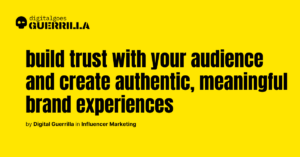
- Why authenticity in influencer partnerships is important?
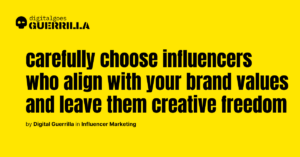
- How to measure the ROI of an influencer marketing campaign?
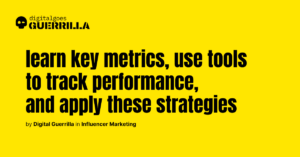
- How do you identify and choose influencers for a marketing campaign?
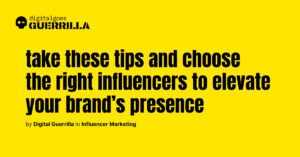
- What challenges can arise in influencer marketing, and how do you address them?
